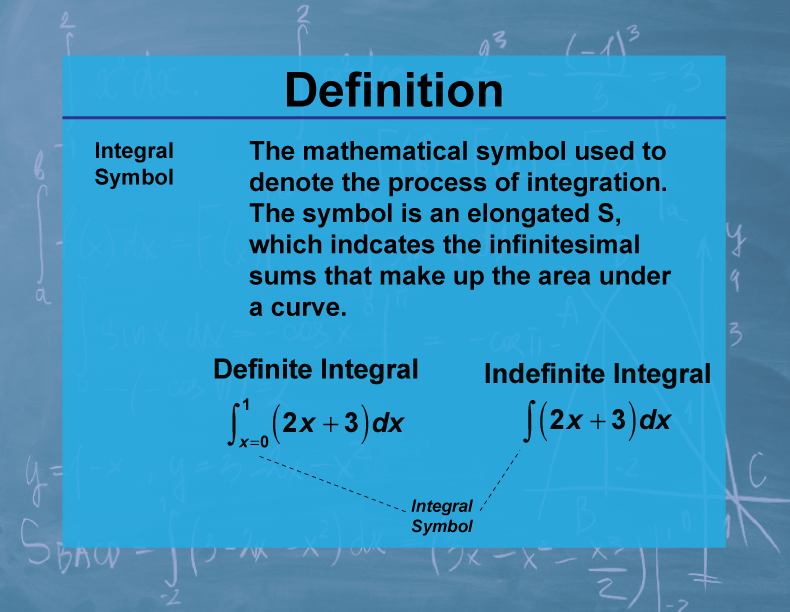
Display Title
Definition--Calculus Topics--Integral Symbol
Display Title
Definition--Calculus Topics--Integral Symbol

Topic
Calculus
Definition
The integral symbol, ∫, is used to denote integration in calculus. It represents the process of finding the area under a curve or the accumulation of quantities.
Description
The integral symbol is a fundamental notation in calculus, representing the concept of integration. It's derived from the Latin word "summa" and resembles an elongated S, symbolizing the idea of summation or accumulation. In definite integrals, the symbol is accompanied by upper and lower limits, specifying the interval over which the integration is performed.
In mathematics education, understanding the integral symbol is crucial for students to interpret and solve integration problems. It serves as a visual cue for the process of integration and helps students connect the symbolic representation with the geometric concept of area under a curve. The symbol is used across various fields of mathematics and science, making it an essential part of mathematical literacy.
Teacher's Script: "Let's look at the integral symbol: ∫. When you see this in a problem, it's telling you to find the area under a curve or to accumulate quantities. For example, ∫[0 to 5] x^2 dx means we're finding the area under the curve y = x^2 from x = 0 to x = 5. The 'dx' at the end tells us we're integrating with respect to x. Can you think of real-world scenarios where we might use this symbol? How about calculating the total distance traveled by a car given its velocity function?"
For a complete collection of terms related to Calculus click on this link: Calculus Vocabulary Collection.
| Common Core Standards | CCSS.MATH.CONTENT.HSF.IF.C.7, CCSS.MATH.CONTENT.HSF.BF.A.1.C |
|---|---|
| Grade Range | 11 - 12 |
| Curriculum Nodes |
Algebra • Advanced Topics in Algebra • Calculus Vocabulary |
| Copyright Year | 2023 |
| Keywords | calculus concepts, limits, derivatives, integrals, composite functions |